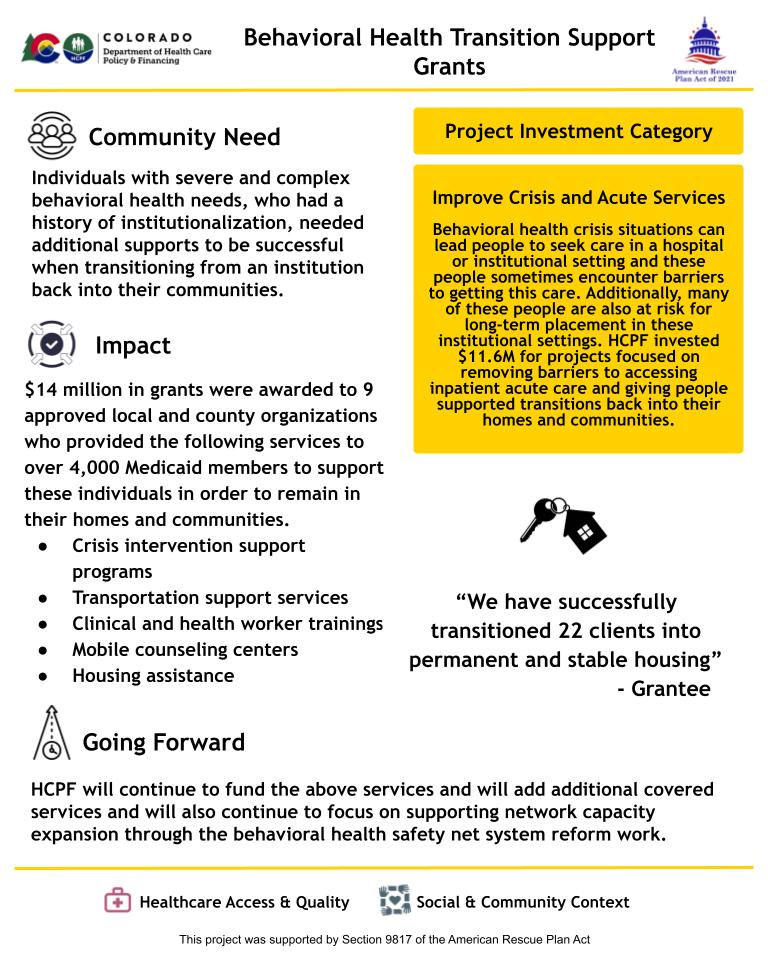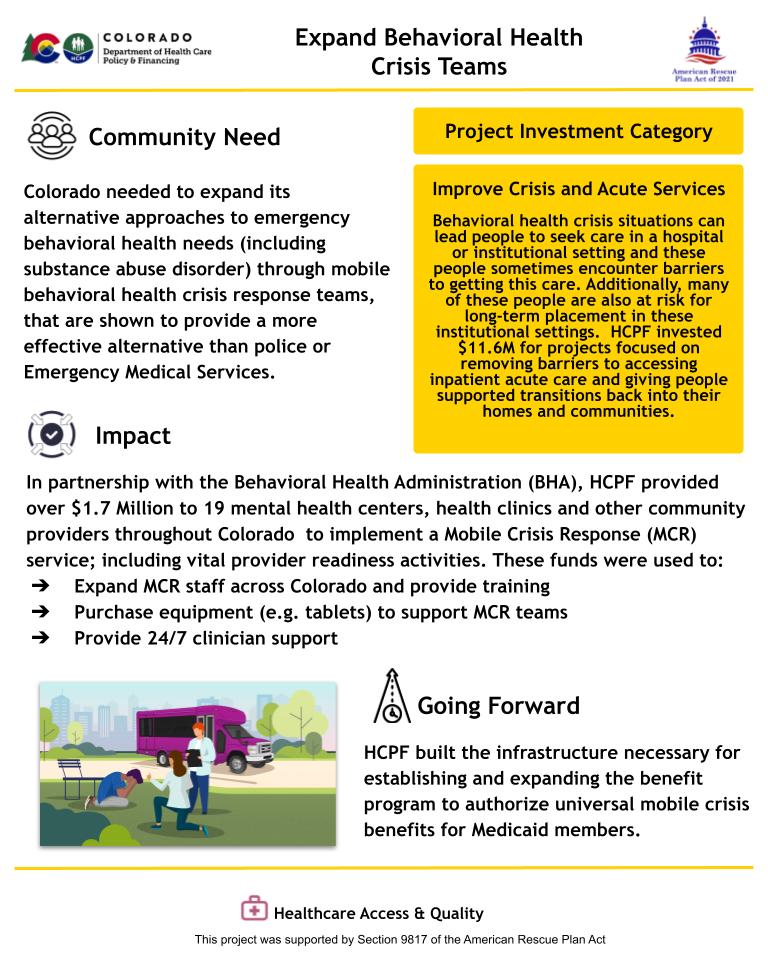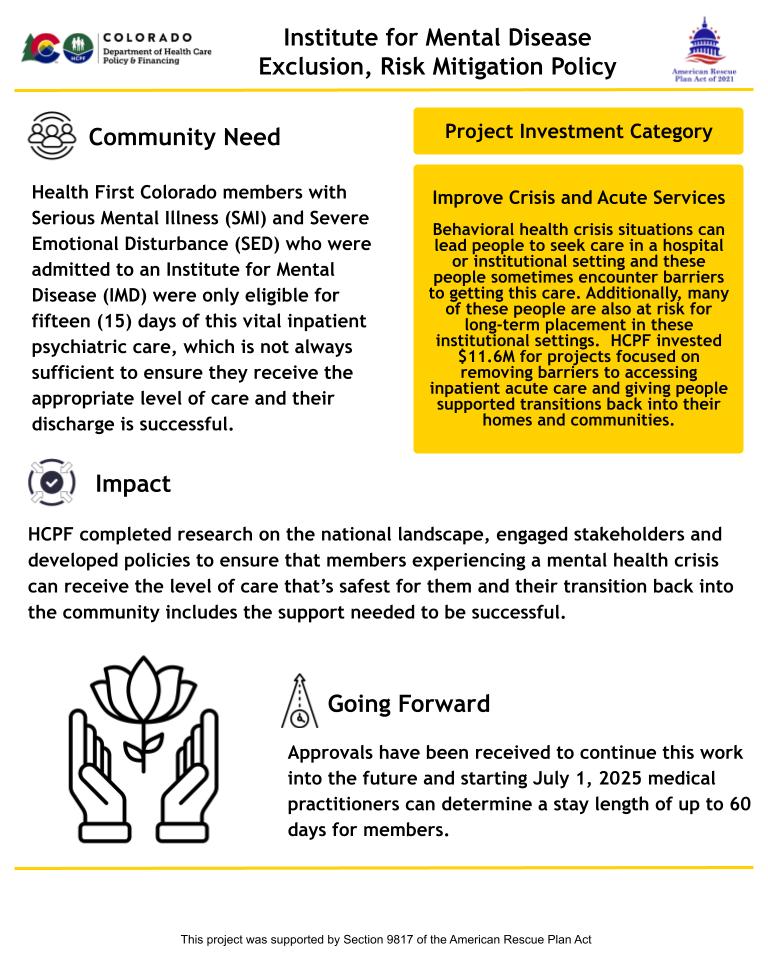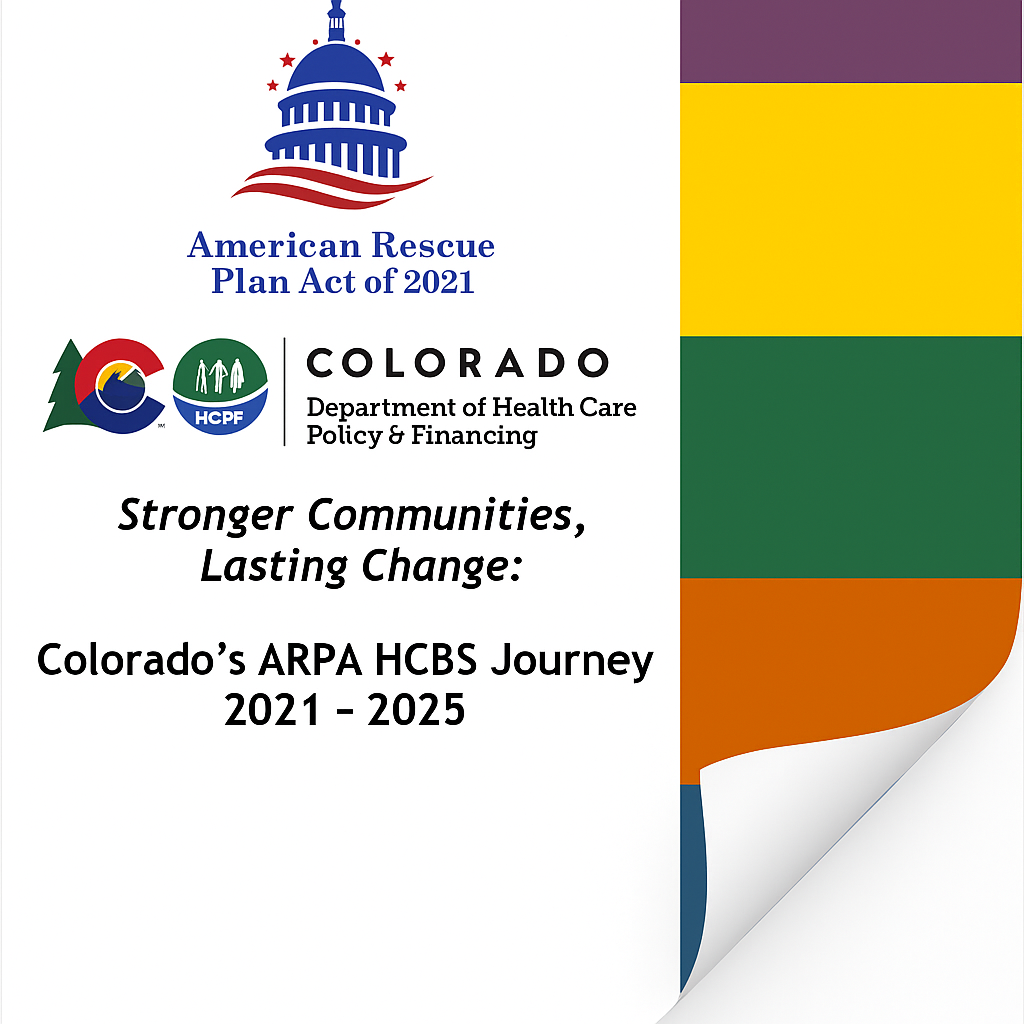Improve Crisis & Acute Services
The Need
Crisis situations can lead individuals who reside in the community to seek treatment or care in a hospital or institutional setting. Unfortunately, these emergency situations can often be the impetus for long-term placement in these settings. If preventive services were expanded, crisis response improved, and Colorado HCBS Spending Plan transitions strengthened, individuals may be able to, instead, return to their homes and communities.
Initiative 2.01 - Behavioral Health Transition Support Grants to Prevent Institutionalization
Read a more in-depth summary of this project's outcomes

Initiative 2.02 - Expand Behavioral Health Mobile Crisis Teams
Read a more in-depth summary of this project's outcomes

Initiative 2.03 - Institute for Mental Disease (IMD) Exclusion, Risk Mitigation Policy
Read a more in-depth summary of this project's outcomes

